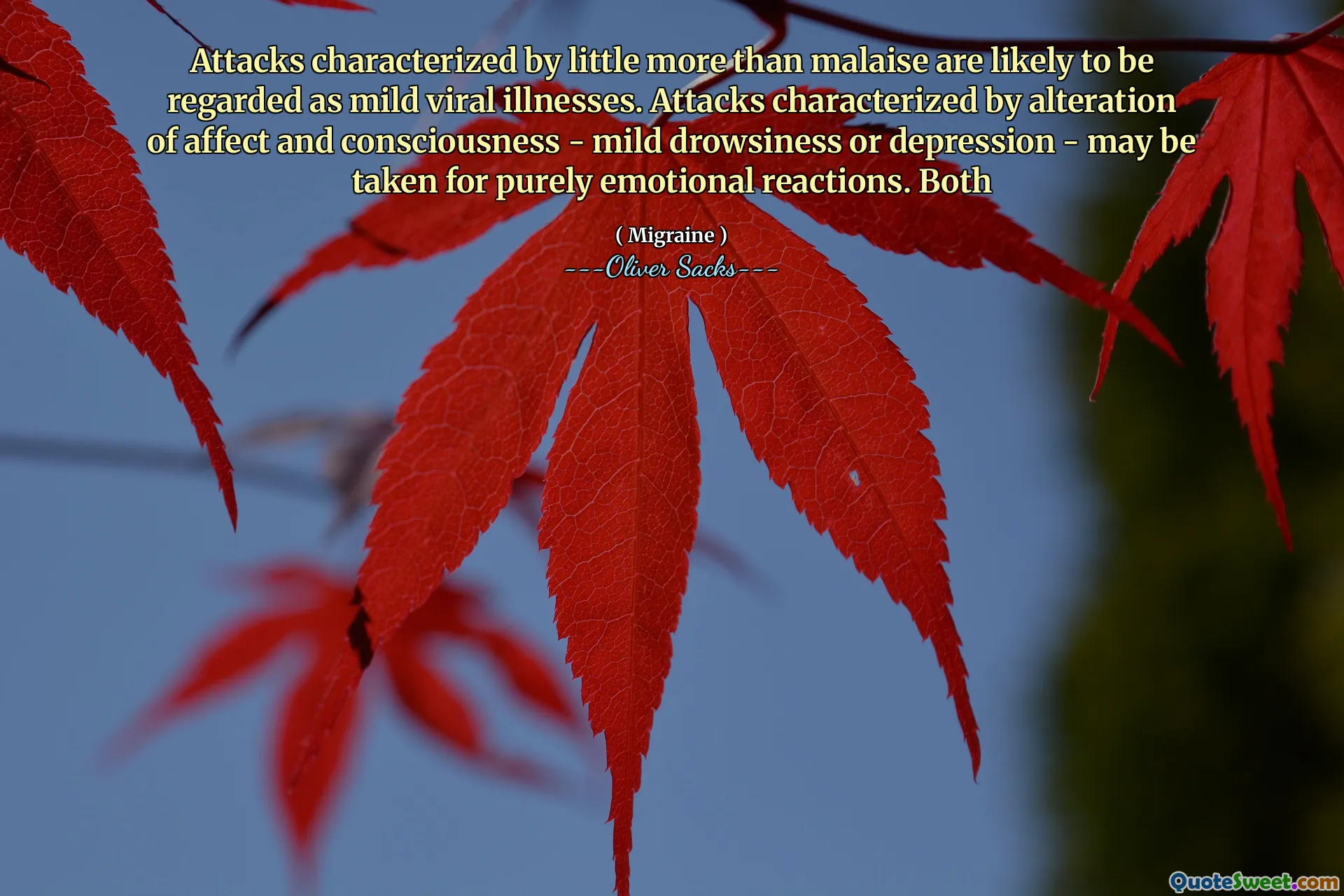
Attacks characterized by little more than malaise are likely to be regarded as mild viral illnesses. Attacks characterized by alteration of affect and consciousness - mild drowsiness or depression - may be taken for purely emotional reactions. Both
The quote poignantly highlights how the perception, diagnosis, and understanding of health-related symptoms can be quite complex, often depending on subtle clinical features. When symptoms are mild—such as malaise—these are frequently dismissed or attributed to common viral illnesses, which are often transient and self-resolving. However, this simplification can be problematic because it may delay recognition of more serious underlying conditions.
Conversely, symptoms involving emotional and consciousness changes, such as mild drowsiness or depression, may be deceptively or mistakenly interpreted as emotional reactions or mental health issues rather than manifestations of organic pathology. This distinction is critical in clinical practice because early identification of underlying neurological, infectious, or metabolic causes can dramatically influence treatment outcomes.
This observation sheds light on the importance of comprehensive evaluation of symptoms, beyond their superficial presentation. It emphasizes that sometimes subtle signs can mask significant underlying pathology, urging clinicians and individuals alike to consider a broad differential diagnosis when encountering seemingly minor or ambiguous symptoms.
From a broader perspective, this quote resonates beyond medicine, reflecting how human perception can be challenged by the complexity of reality. Often, we tend to oversimplify or misinterpret signals—be they physical or emotional—leading to underestimating their true significance. Awareness and attentiveness become vital in discerning between common, benign episodes and those that warrant closer investigation, ultimately influencing better health management and outcomes.
By fostering a nuanced understanding of symptoms, healthcare providers can improve diagnostic accuracy, prevent misdiagnoses, and ensure appropriate interventions. Recognizing the fine line between the medical and psychological presentations underscores the importance of holistic assessment, compassion, and continuous learning in medicine.







